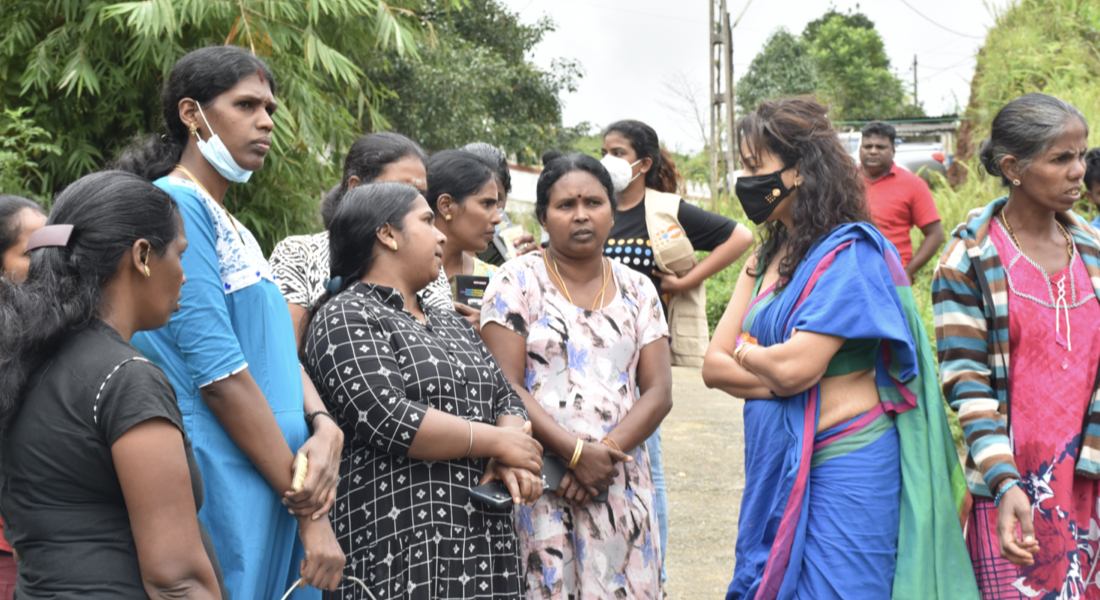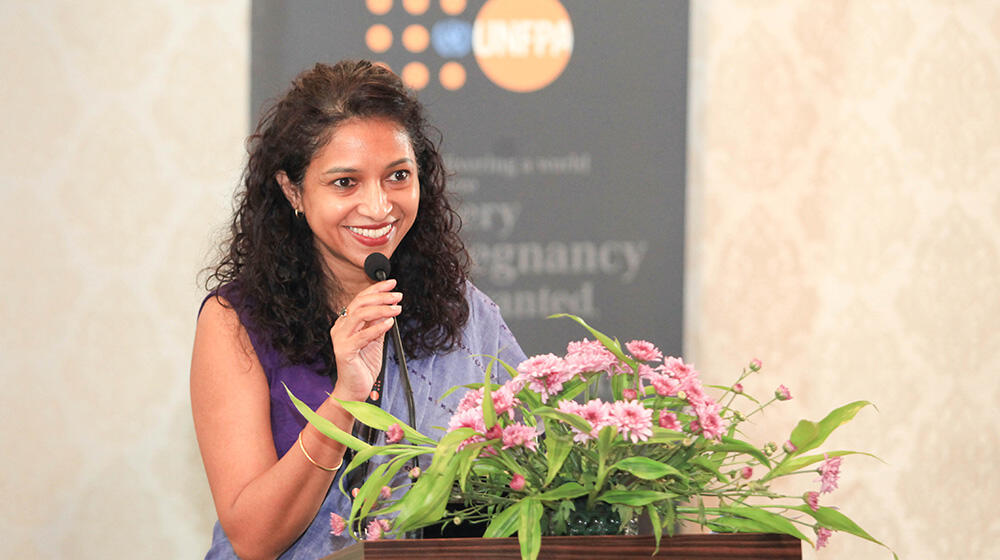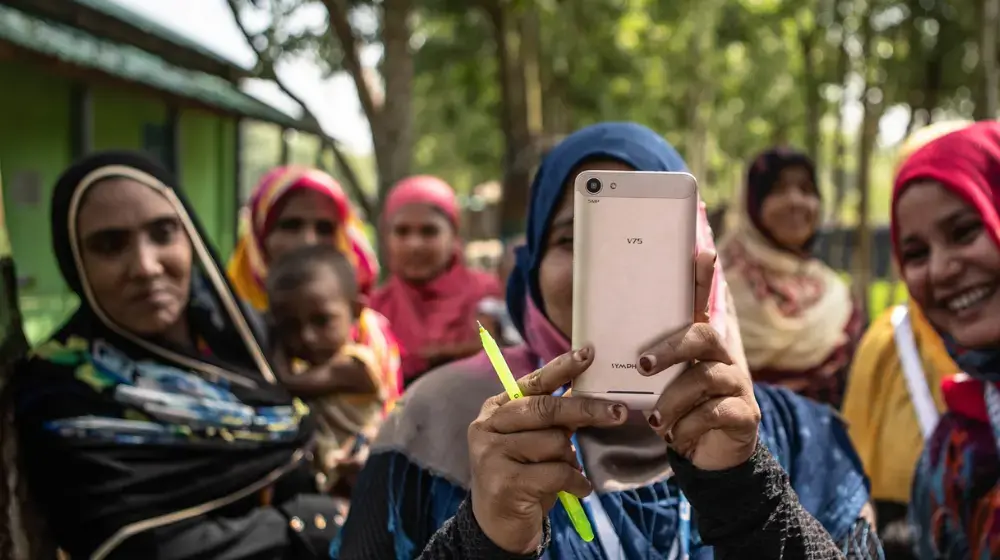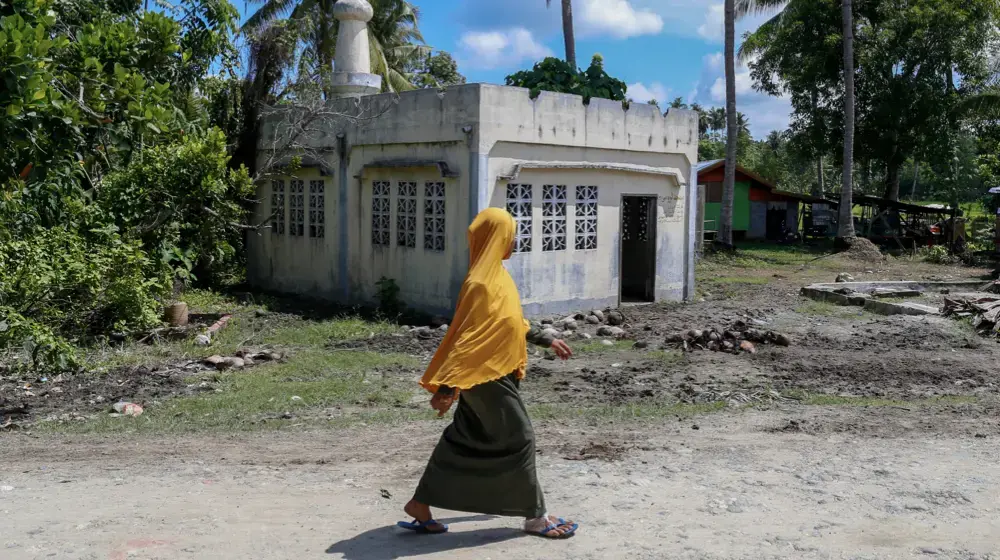“The multiple dimensions of the crisis in Sri Lanka have affected people from all walks of life”
Sharika Cooray is the National Programme and Policy Analyst for Gender and Women's Rights and Humanitarian focal point with UNFPA Sri Lanka. She has been on the ground throughout the economic crisis that has engulfed the country for more than a year. She's been at the centre of the humanitarian response while coping with fuel shortages, power cuts and multiple expanding disasters that disproportionately affect women, girls and other marginalized groups.
”This is a multi-dimensional crisis,” says Sharika. “We are seeing increasing inflation in the past few months. The household income has decreased causing severe impact, specifically for daily wage earners in the informal sector and those within the garment industry and the estate sector. With many experiencing loss of jobs, others struggle with a lack of increase in wages, impacting rising household expenses.”
The burden of managing households has become the responsibility of women. She says the crisis means anxiety within the household. With the economic and political turmoil, many men are unemployed and women are finding alternative jobs to supplement the household income. “We are seeing a shift in roles in terms of wage earners, but that does not mean that there has been a shift in attitudes or patriarchy. We are hoping that this change will influence the power dynamics within the household and translate to communities.”
Sharika says that often when women-headed households encounter financial hardships, they don’t approach established lending organizations. Instead they tend to go towards microcredit options, where loan sharks openly use sexual bribery. “Discussions with our partners at the grassroots narrated that, a woman shared how she was told to come to the office of a particular officer so she can sign the bond while sitting on his lap.” This not only reflects the helplessness of those suffering due to the crisis, but also the social inequalities prevalent in society. Sexual exploitation and bribery are widespread but little attention is paid to these issues.
“There has also been an increase in gender-based violence, specifically domestic violence. The root causes are the power imbalances embedded with a patriarchal system."
“There has also been an increase in gender-based violence, specifically domestic violence. The root causes are the power imbalances embedded with a patriarchal system, as when men lose their jobs, they use their power to torment and control to vent their frustration. Women bear this brunt. These have a long lasting impact beyond the crisis."
The country is seeing a concerning trend of teenage pregnancy and risky behavior, including drug abuse, as per anecdotal evidence. “What we hear from the shelters we support is that men who are not able to find employment are frustrated. The increase in use of drugs by men has further contributed towards higher risks of intimate partner violence and domestic violence which are very brutal in nature.”
Sri Lanka does not have a sufficiently developed network of shelters. Some of the centers are dependent on government funding, which has been uncertain and insufficient to offer meaningful support for survivors.
With services stretched to the breaking point by the ongoing crisis, Sharika says the problems for women are only increasing. “Sexual harassment in public spaces has increased and there is a lack of law enforcement support to protect women and girls.”
Sri Lanka is also seeing a dangerous shift in courts where more cases of domestic violence are being dismissed. “Some judges are saying there are bigger issues in the country and issues concerning domestic violence do not need to be prioritized at this moment.”
“People’s life savings have depleted and they are forced to earn for their everyday survival.”
The country is going through collective trauma as families are struggling to plan for the next day or next week. “People’s life savings have depleted and they are forced to earn for their everyday survival.”
“The multi-sectoral gender-based violence support and assistance for shelters has been a priority for UNFPA's response. Additionally, the focus on providing dignity and maternity kits for women and girls and setting up cash and voucher assistance projects for marginalized groups, commodities for family planning and sourcing medicines needed for maternal health is at the centre of UNFPA’s response.”
In response to the increased risks of domestic violence, Sharika says a priority has been to support the shelters with funding, not only to continue with their daily activities, but also to accommodate more women in the shelters and integrate prevention mechanisms. The centers have been organizing community protection mechanisms like peer support groups. “We are developing groups of women who are empowered in the community so they can intervene in cases of violence. They are trained and become a support system within the community.”

Sharika says that UNFPA Sri Lanka has shifted from technical advocacy in an upper middle income country to a complex humanitarian context focused on delivering maternal health services and direct family planning support. “We have changed modes and now look at where we need to be in terms of working at the ground level, supporting the community.”
The struggles to get by have left little time to reflect. “People do not have time to heal,” she says. “Counseling support should increase amidst existing efforts.” Sharika says psychosocial support is a necessity for everyone in Sri Lanka, especially the women who bear the brunt of this crisis. “The frustration is that there is no outlet to discuss people’s frustration within the community.”
Learn more
Donate to support the Humanitarian Response in Sri Lanka
Rapid Gender Analysis Sri Lanka 2022
One mother’s fight for a safe delivery: What it’s like to give birth in Sri Lanka right now




